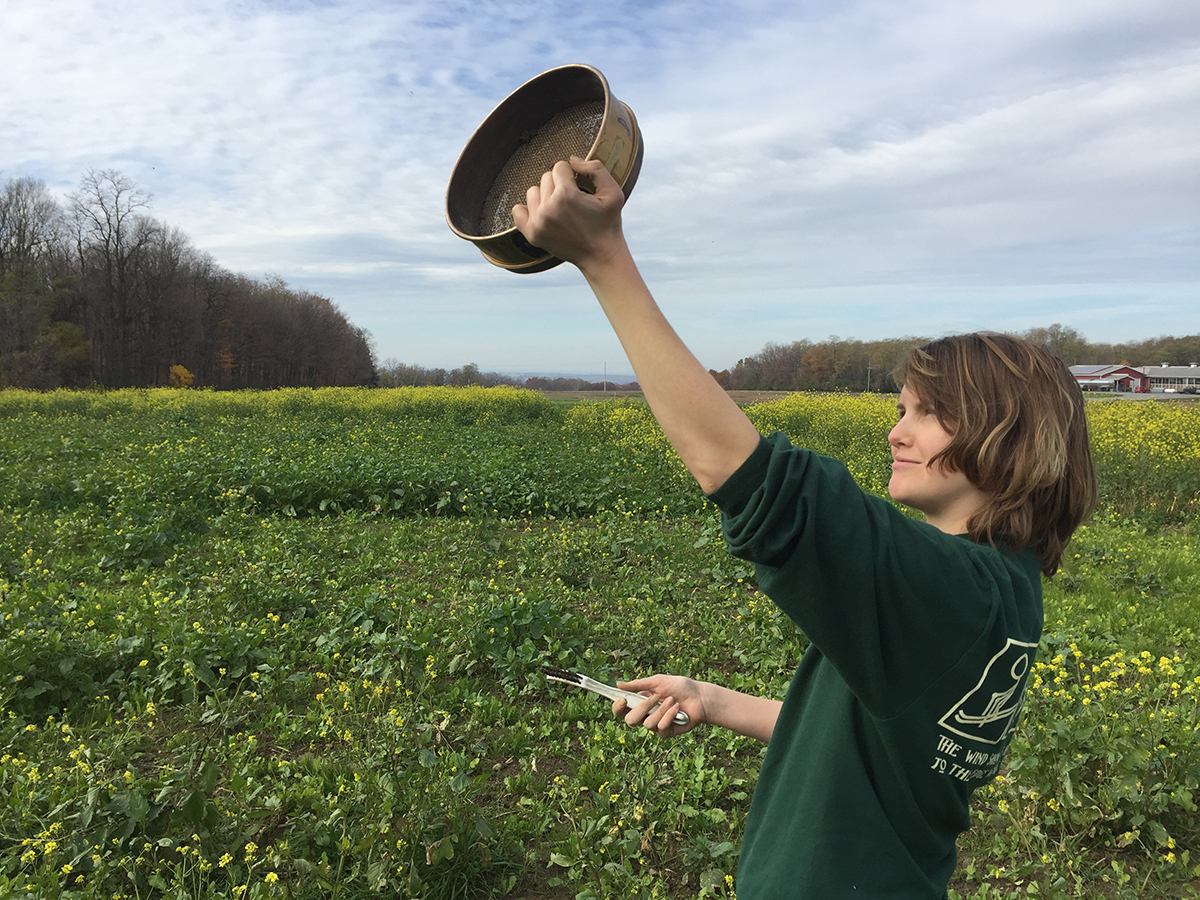Ann Bybee-Finley, a second-year doctoral student at Cornell studying cropping systems resilience with a focus on Northeastern dairy producers, has been named a 2017 Future Leader in Science by the American Society of Agronomy (ASA), Crop Science Society of America (CSSA) and Soil Science Society of America (SSSA).
She is one of 18 graduate students to receive the award in recognition of their interest and engagement in science advocacy. Award winners traveled to Washington, D.C., March 14 to participate in the annual ASA, CSSA and SSSA Congressional Visits Day. They met with members of Congress to advocate for food, agriculture and natural resources research.
According to Bybee-Finley, agricultural policies that are focused exclusively on maintaining or increasing yields of a few main crops ignore key elements of sustainable agriculture. She advocates for looking at agricultural fields as an ecosystem where many elements, such as pollinators and soil microbes, contribute to crop productivity.
As an agroecologist working under the direction of assistant professor Matthew Ryan in the Sustainable Cropping Systems Lab, her research mission is to help farmers increase the resilience of their operations in the face of climate change.
Bybee-Finley said dairy farmers who face an increased frequency of extreme weather events, like floods and droughts, are left with limited options when faced with shortages of feed regularly grown on the farm. This leads farmers to import costly grains from elsewhere.
Her research in the Sustainable Cropping Systems Lab is providing extension agents, crop consultants and farmers with more information on summer and winter annual forage crops, such as triticale, sorghum-sudangrass and red clover, as viable alternatives to corn or soybean. Her work involves comparing different levels of crop diversity and types of crop rotations. In partnership with farmers, she is studying the potential economic benefits of these systems, as well as the effects of certain agricultural policies on farmer decision-making.
She received her bachelor’s degrees in biochemistry and international development from West Virginia University in 2011, and her master’s in agronomy from Cornell in 2016.
This article is written by Matt Hayes and was published in the Cornell Chronicle on March 16, 2017.
